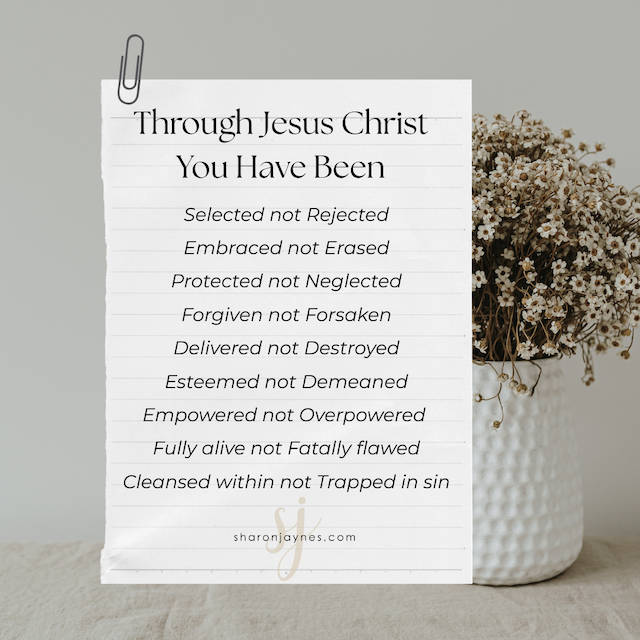Bringing Joy to God Through Humility (2 Chron 33.12-13, 19)

While he was in distress he entreated the favor of the LORD his God and humbled himself greatly before the God of his ancestors. He prayed to him, and God received his entreaty, heard his plea, and restored him again to Jerusalem and to his kingdom. Then Manasseh knew that the LORD indeed was God.
His prayer, and how God received his entreaty, all his sin and his faithlessness, the sites on which he built high places and set up the sacred poles and the images, before he humbled himself, these are written in the records of the seers.
Often, when we falter in our faith, when we sin, or when we stray, the moment we confess and repent can be embarrassing, difficult, and somber. Yet this prayer, offered by a king who did terrible things, shows how much pleasure God has when someone asks for forgiveness.
Background
Manasseh began his reign when only twelve years old, and he was not a good king because “he did what was evil in the sight of the LORD.” This included rebuilding the altars to Ba’al, restoring the “high places” that his father had torn down, and became a worshipper of all the foreign gods. He even built pagan altars inside the Temple of God. He misled the people so that they turned away from God, too. Even when God sent prophets and messages, they were ignored.
Because of this, God allowed Assyria to capture Manasseh and take him away to their capital city of Babylon. Brought low, he humbled himself and prayed to God. God forgave him, and he was able to return to Jerusalem as king.
Following his repentance and return, he fortified the cities and, moreover, the foreign idols and altars, restored the Temple, and ordered all the people to serve God alone. But many did not return to the God of their faith.
Manasseh reigned longer than any other king of Judah, and the Chronicler ends the story with a positive account of the king because he repented and turned back to God.
His son Amon was the next king, and he reversed all the good that his father had done. The next king, Josiah, is a reformer and returned Israel to their faithful ways. Yet he died because of some disobedience, and the next four kings are so bad that the writer hardly spends any time on them. Jerusalem and the Temple are destroyed, and the people are taken away into Exile. Eighty years later, they will be allowed to return to their land and begin rebuilding. Throughout the reigns of the last four kings, there are no prayers reported.1
Meaning
The use of the word “humble” throughout this passage emphasizes the meaning of the prayer and the story. The Chronicler likes to emphasize the concept of “immediate retribution,” that is, that faithful acts bring blessings and unfaithful acts bring suffering. Of course, we know that is not always true, as did the writer. But it is often true. Once Manasseh humbled himself in prayer, he was forgiven and restored to the throne. The story epitomizes Solomon’s words from 2 Chron 7.14…and then my people whom I have named my own submit and pray to me and seek me and turn back from their evil ways; I shall hear from heaven and forgive their sins and restore their land.
More interesting is the contrast between how the writer of Kings and the Chronicler portray Manasseh. Kings portrays his sins as so bad that they led to the eventual destruction of Jerusalem and the Temple and the Exile of all the leaders and priests to Babylon. While the Chronicler described his sins in the early part of his reign, it focuses more on his repentance and prayer. This is merely a matter of emphasis or focus; the Chronicler, as we have discussed previously, is interested in the results of faithfulness. Even the best of God’s followers commit sin, and even the worst have some redeeming actions or qualities (Moses, David, Ahab, Paul). Faith and life are complex and diverse.
The writer of Chronicles may not blame Manasseh directly for the Exile, but does use him as a symbol for it. He sins and rejects God, as Judah did. He is taken away into exile (to Babylon!), just as the entire nation would be taken away to Babylon fifty years after Manasseh died. And as Manasseh humbled himself and repented in prayer, being restored to his land, so the people in Exile would humble themselves and be returned to their land to rebuild the Temple and their city.2
Application
Repentance includes humbling oneself, a prayer of repentance, a vow to change one’s ways, and the actions that show that change. It would be helpful to know the words of Manasseh’s prayer as an example of a prayer of repentance, but the writer does not include them.3
Yet, as noted above, God values repentance, and the description in 1 Timothy 1.15-16 is apt, as it reflects Paul’s own repentance:
‘Christ Jesus came into the world to save sinners’; and among them I stand first. But I was mercifully dealt with for this very purpose, that Jesus Christ might find in me the first occasion for displaying his inexhaustible patience, and that I might be typical of all who were in future to have faith in him and gain eternal life.
This is a promise to all of us. We may not be among the foremost of sinners, but we are all still sinners in need of grace. Though we often focus on God’s commands or desires for us, on living rightly with God and “doing what Jesus would do,” it should be comforting to know how much God values our repentance.
Consider a time when you needed to repent. Maybe it is now. Your reaction to your sins might typically be to ignore them, to say a quick prayer, or to rationalize. After all, it is embarrassing to admit failure and to admit our faith is not as strong as we would wish. But God loves to hear prayers of repentance. We should pray more!
Offer a prayer of repentance now. Use some of the concepts from this passage, or the passage in 1 Timothy, or some of the past prayers of repentance we have studied. As you pray, think about the joy you are bringing God.
- Josiah is said to “seek” God in a general manner, which surely included prayer. The Passover meal that he re-institutes also would have included prayer, but the writer includes no mention. ↩
- The parallels and symbolism goes much deeper than that. Manasseh was freed from his enslavement like Israel (Ezek 34:27; Isa 61:1; 42:7; 49:9; 58:6; Jer 29:10; 30:8; Ps 107:10–16), came back and rebuilt the city and towns (Isa 58:12; Ezek 36:33, 35; Amos 9:11, 14); he came to truly know God (Ezek 36:26); and he brought true worship back to the Temple (Zech 14:6; Isa 27:13). ↩
- Centuries later, someone composed what they thought the prayer might have been, based on this story and perhaps other records or traditions. It is called “The Prayer of Manasseh,” and can be found in the Apocrypha. ↩
Discover more from Praying Through the Bible
Subscribe to get the latest posts sent to your email.





